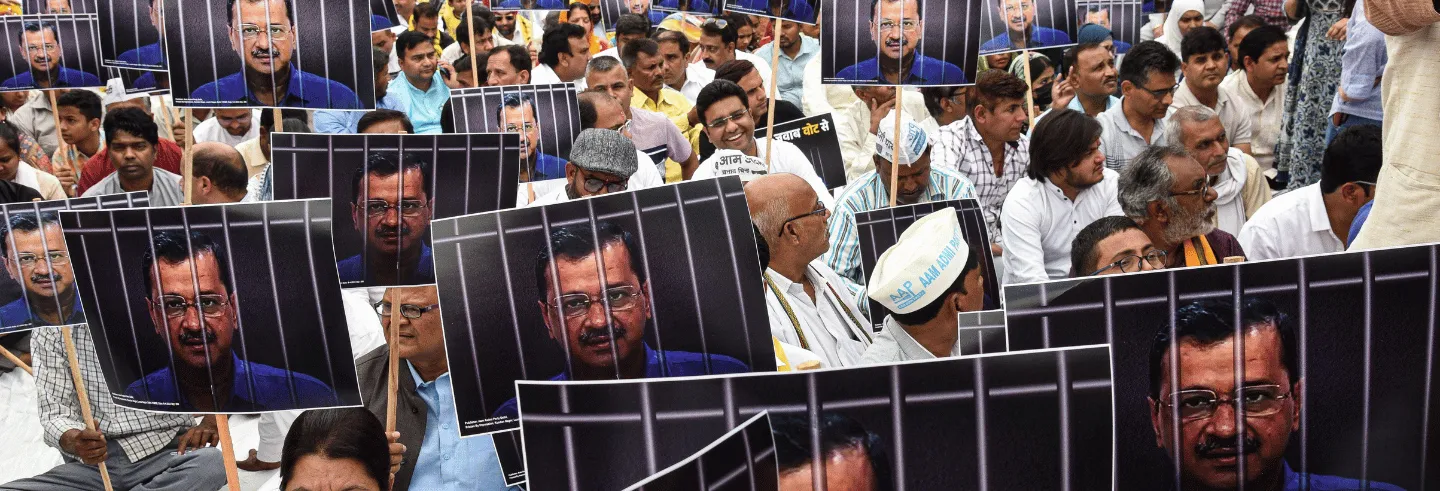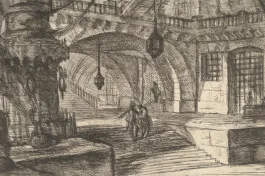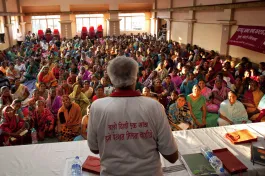B.R. Ambedkar used the term “constitutional morality” to mean more than just obeying the letter of the law. It is a commitment to the Constitution of India’s core principles—justice, liberty, equality, and accountability. In the Constituent Assembly, Ambedkar warned that “constitutional morality is not a natural sentiment. It has to be cultivated”. In other words, having good laws on paper is not enough. Society must cultivate a political culture that respects these ideals.
Now, a new constitutional amendment is testing those ideals. The Constitution (130th Amendment) Bill, 2025, introduced in Parliament in August 2025, proposes a dramatic rule—if a prime minister, chief minister, or any minister is arrested and kept in custody for 30 consecutive days on a serious criminal charge (one punishable by five or more years in prison), she or he would automatically lose their office. The intent, according to the government, is to cleanse politics of corruption and ensure that no leader can govern from behind bars.
The bill is a response to instances of politicians continuing in power even while in jail. But the proposal raises a fundamental question—can mere suspicion and detention replace democratic legitimacy? Should elected leaders lose office not because they are proven guilty, but simply because they spent a month in jail? These questions force us to examine the amendment through the lens of constitutional morality, the spirit of the Constitution’s safeguards and values.
Historical Lessons
Every constitutional amendment must be viewed against the backdrop of history. India’s experience shows that amendments can be double-edged—some strengthened democracy, while others undermined it. Two notorious examples from India’s Emergency era (1975–77) illustrate how constitutional change can be misused. The first was the 39th Amendment in 1975, which was rushed through during the Emergency to shield Prime Minister Indira Gandhi from an adverse court verdict. It placed the election of the prime minister (among other high offices) beyond judicial scrutiny, effectively overturning a court judgment that had voided Mrs. Gandhi’s election for electoral malpractice.
Two notorious examples from India’s Emergency era (1975–77) illustrate how constitutional change can be misused.
The following year, the 42nd Amendment (1976) went even further. Justified in the name of “stability”, it concentrated power in the executive and severely curtailed checks and balances. For instance, it removed limits on the parliament’s power to amend the Constitution and barred courts from reviewing constitutional amendments. These changes were passed under the guise of “saving democracy”, but they undermined core democratic principles. They were later partly undone by the Supreme Court’s “basic structure” doctrine 1This is a principle established by the Supreme Court in Keshavananda Bharati v. State of Kerala (1973). It holds that certain fundamental features of the Constitution (such as democracy, federalism, secularism, rule of law, and the protection of fundamental rights) form part of its “basic structure” and cannot be altered or destroyed by any constitutional amendment, even one passed with the required majority. and a corrective 44th Amendment (1978), but the Emergency-era amendments remain a cautionary tale.
This historical context is crucial when evaluating the 130th Amendment. It is presented as a moral reform, but does it truly strengthen India’s democracy in line with constitutional morality? Or does it repeat the mistakes of amendments like the 39th and 42nd by sacrificing core principles for a superficially righteous goal?
Proposal and Rationale
What exactly does the 130th Amendment Bill propose? In simple terms, it adds a new eligibility condition to continue to be in high political office. If a union or state minister (the prime minister, a chief minister, or any minister at the central or state level) is arrested and detained for at least 30 consecutive days for an alleged offence punishable by five or more years in prison, they will cease to hold their position.
This rule will apply across India, affecting the union government, all state governments, and even union territories like Delhi, Puducherry, and Jammu and Kashmir. In effect, if a minister spends a month in jail as an undertrial (awaiting or undergoing trial) on a serious charge, her or his office would automatically fall vacant on the 31st day.
Does an accusation or ongoing investigation alone suffice to disqualify an elected leader? Can we allow police action and pre-trial custody to trigger the removal of someone chosen by the people?
Why introduce such a measure? The government presents it as a step to enhance integrity in public life. The bill’s Statement of Objects and Reasons argues that the “character and conduct of ministers should be beyond suspicion”, suggesting that allowing someone to continue governing from behind bars would “thwart principles of good governance” and diminish public trust. In other words, the amendment is billed as a moral necessity to restore faith in government.
Supporters point out that a bureaucrat is automatically suspended if she or he spends more than 48 hours in custody, and an elected leader should at least be held to the same standard. They also note that India has seen instances of politicians effectively running ministries or election campaigns from jail, which offends public sensibilities about how governance ought to function. In their view, the 130th Amendment closes a loophole and aligns high public office with high personal integrity.
This ostensibly simple logic, however, raises complex constitutional questions. Does an accusation or ongoing investigation alone suffice to disqualify an elected leader? Can we allow police action and pre-trial custody (which often occurs before any finding of guilt) to trigger the removal of someone chosen by the people? These questions go to the heart of the Constitution’s safeguards and the concept of constitutional morality that Ambedkar spoke of. With this in mind, we can examine the major concerns the 130th Amendment raises, from the presumption of innocence to the risks it poses to federalism.
Custody as Punishment
A fundamental concern with the 130th Amendment is that it conflates being in custody with being guilty. Under Indian law, as in any democracy, a person accused of a crime is presumed innocent until proven guilty by a court. This is not just a lofty ideal but a cornerstone of criminal justice, embedded in our Constitution. Article 21 of the Constitution guarantees that no person shall be deprived of life or liberty except through a fair, just, and reasonable legal procedure.
The Supreme Court has interpreted Article 21 to require due process at every step, and in the 1970s it famously said “bail is the rule, jail the exception”. In plain terms, unless someone is convicted, they generally have the right to remain free and continue their normal life. For an elected official, that normal life includes serving in office on behalf of the voters who put them there.
It elevates the appearance of moral purity (no leaders in jail) over the substance of due process. This tension between integrity and liberty lies at the heart of the debate.
The proposed amendment turns this principle on its head by making mere detention a ground for removal from office. Under this rule, simply being jailed for 30 days (without any conviction) would be enough to eject a chief minister or minister from their position. This is deeply troubling, because in India, being in custody often has little to do with actual guilt. Investigations and trials are slow, and the authorities sometimes arrest individuals on serious charges knowing that the long legal process itself can act as a form of punishment.
Official data bear this out—more than 75% of prisoners in India are “undertrials”, people not yet convicted of any crime but languishing in jail awaiting trial (NCRB 2022). Many spend months or years behind bars not because they have been found guilty, but because their cases drag on in overburdened courts. Decades ago, in 1979, the Supreme Court ordered the release of thousands of undertrial prisoners, declaring that indefinite detention without trial violated fundamental rights.
Given this reality, removing someone from public office simply because they are incarcerated means punishing individuals not for proven wrongdoing, but because of flaws or delays in the justice system. The Constitution’s framers never included such a provision—likely because doing so would undermine the presumption of innocence and the people’s mandate. By allowing suspicion and detention to serve as a new, extra-legal “verdict”, the 130th Amendment veers toward what critics call “disqualification by suspicion”. It elevates the appearance of moral purity (no leaders in jail) over the substance of due process. This tension between integrity and liberty lies at the heart of the debate.
These concerns are sharpened by India’s harsh bail laws. Obtaining bail can be extremely difficult under stringent statutes such as the Unlawful Activities (Prevention) Act (UAPA) and the Prevention of Money Laundering Act (PMLA). People often spend years in jail under these laws even if they are never convicted. Only around 3% of those arrested under the UAPA anti-terror law are eventually convicted, and the PMLA has yielded very few convictions out of thousands of cases (Scroll 2022; Scroll 2025).
…[A]bout 95% of investigations by the CBI and ED in recent years have targeted opposition politicians, and very few of those cases have led to convictions.
In other words, many people charged under these laws either end up being found not guilty or remain trapped in lengthy trials, but still spend years in jail while they wait. The very process of being accused and denied bail becomes a punishment in itself—a phenomenon often described as “process as punishment”.
By tying a constitutional office to mere custody, the 130th Amendment would effectively entrench this problem in our law. A minister could lose her or his position after 30 days in jail not because there is proof of misconduct, but simply because stringent bail rules keep them behind bars. In short, being denied bail would mean losing their post, turning a procedural issue in the legal system into a reason for disqualification under the Constitution.
Risks of Abuse
Another striking aspect of the 130th Amendment is its selective scope. It targets only the executive branch (ministers), not legislators or other officials. Under current law, even a member of parliament or state assembly who is jailed does not automatically lose their seat. But, under the new proposal, a chief minister or minister would have to step down after 30 days in jail, even if they still enjoy the confidence of the legislature. This creates a curious asymmetry—a legislator could be in prison for months and continue as a lawmaker, but the head of a government would be ousted after one month behind bars.
India’s parliamentary system hinges on collective responsibility—the government stays in power only while it retains the legislature’s confidence. Usually, a chief minister is ousted only if the assembly withdraws support (a no-confidence vote) or if the leader is convicted of a serious crime (triggering disqualification under the election law). The 130th Amendment, however, introduces a new extrajudicial criterion (time spent in custody) that bypasses both the judiciary’s role in establishing guilt and the legislature’s role in maintaining support. It effectively enables law enforcement agencies to do what ordinarily only a court verdict or an Assembly vote could accomplish.
These fears are amplified by the realities of India’s federal politics. Policing is largely a state matter, but central investigative agencies like the Central Bureau of Investigation (CBI) and Enforcement Directorate (ED)—which are controlled by the union government—often intervene in state affairs, especially in high-profile criminal cases. Opposition parties have long accused the ruling party at the centre of using these agencies to harass rival politicians. Some evidence backs this charge—about 95% of investigations by the CBI and ED in recent years have targeted opposition politicians (Indian Express 2023), and very few of those cases have led to convictions.
After the 2024 general election, nearly half of the newly elected members of parliament had criminal cases pending against them, many involving serious charges.
With the 130th Amendment in place, the union government would gain a potent new lever over state governments. Imagine a scenario where a central agency arrests a chief minister from an opposition party on serious charges and manages to keep them in custody for over a month. That chief minister would automatically lose office, potentially destabilising the entire state government, even if her or his party still holds a majority in the state assembly. In effect, a tool presented as a moral cleansing of politics could become a weapon to destabilise elected governments. India has a history of the central government abusing Article 356 (president’s rule) to dismiss opposition-led state governments. 2Article 356 is a provision in the Constitution that allows the central government to dismiss a state’s elected government and impose direct rule (subject to parliamentary approval) if the state government cannot be carried on in accordance with the Constitution. This mechanism was often used to topple state governments run by rival parties, until a 1994 Supreme Court ruling (in S.R. Bommai v. Union of India) laid down strict guidelines to curb its misuse and protect the federal balance.
That practice was sharply curtailed by a 1994 Supreme Court ruling that affirmed federalism as part of the Constitution’s basic structure and strictly limited the use of president’s rule. Critics warn that the 130th Amendment could open a backdoor to achieve a similar outcome via orchestrated detentions.
Instead of openly imposing president’s rule, the centre could remove an inconvenient chief minister through a legal process, skirting the immediate outcry that comes with outright dismissal. By the time courts review such action, the damage to democratic norms and federal balance would already be done. In sum, a reform touted as upholding “morality” in high office could in practice erode the spirit of cooperative federalism and the people’s mandate.
Integrity Yes, But With Due Process
The appeal of the 130th Amendment lies in its promise to bolster integrity in public office. It taps into an understandable public sentiment that lawmakers should not be lawbreakers. After the 2024 general election, nearly half of the newly elected members of parliament had criminal cases pending against them, many involving serious charges (Business Standard 2024).
Voters are justifiably frustrated when people accused of rape, murder, or corruption occupy high office. The amendment’s proponents argue that even the most powerful leaders should face consequences and that governance should not be conducted from a jail cell. These are valid concerns. No one denies the need for cleaner politics and greater accountability.
Yet this well-intentioned cure may be worse than the disease. Equating custody with guilt punches a hole in the presumption of innocence, the bedrock of our justice system. Giving investigative agencies the power to unseat elected leaders invites abuse and political vendettas, threatening the federal balance. A measure meant to purify politics could end up polluting core democratic values.
History offers a stark warning. During the Emergency, the 42nd Amendment, justified as a “national necessity”, proved to be a grave constitutional overreach—one that took years to undo. The 130th Amendment poses a similar risk. Parliament must ask whether this proposal truly reflects constitutional morality or merely cloaks a punitive shortcut in moral rhetoric.
The 130th Amendment, as it stands, asks India to surrender a measure of liberty and fairness for the sake of an image of purity in politics.
Crucially, there are better ways to tackle criminality in politics without undermining the rule of law. If cases against politicians drag on, special fast-track courts could ensure quicker verdicts. If arrests are misused, bail laws can be reformed and strict guidelines enforced to prevent arbitrary detention. Political parties, on their part, should stop fielding candidates with egregious criminal records. Such measures address the disease of corruption in politics without breaking the Constitution’s safeguards. The cure for bad governance is better law enforcement and higher ethical standards, not suspending the basic principles of justice.
At its core, democracy is about balancing values. We must be able to punish the guilty, but also protect the innocent with equal vigour. In our zeal for virtue, we should not create a system where a mere arrest (which might be unjust or premature) becomes equivalent to a conviction. The 130th Amendment, as it stands, asks India to surrender a measure of liberty and fairness for the sake of an image of purity in politics.
It is a false bargain unworthy of a constitutional democracy. Upholding constitutional morality requires recommitting to the rule of law, where accountability comes through proper trials and convictions, not shortcuts. Lawmakers should heed these lessons of history—in their efforts to clean up the system, they must be careful not to wash away the ideals that make our Constitution worth defending.









